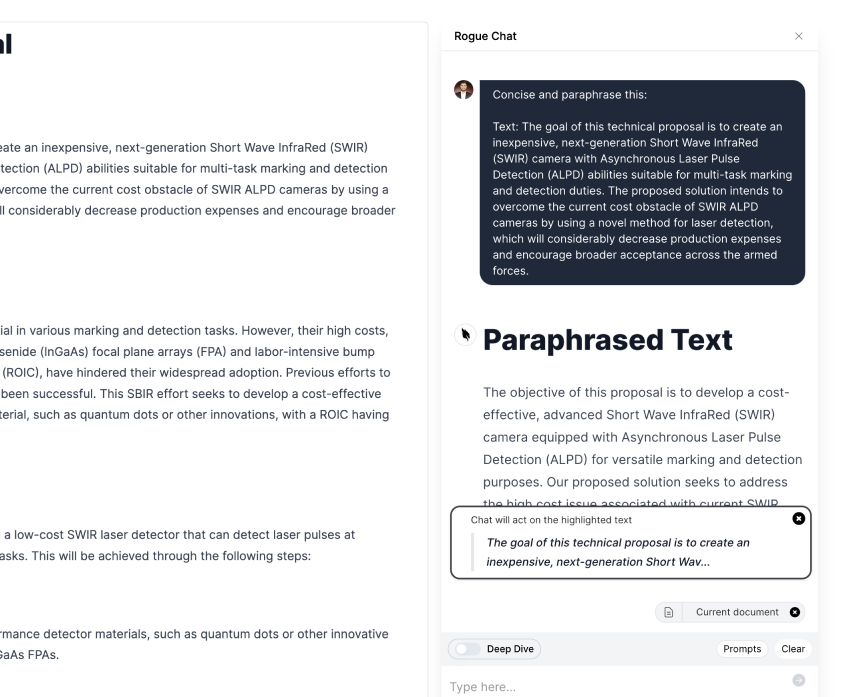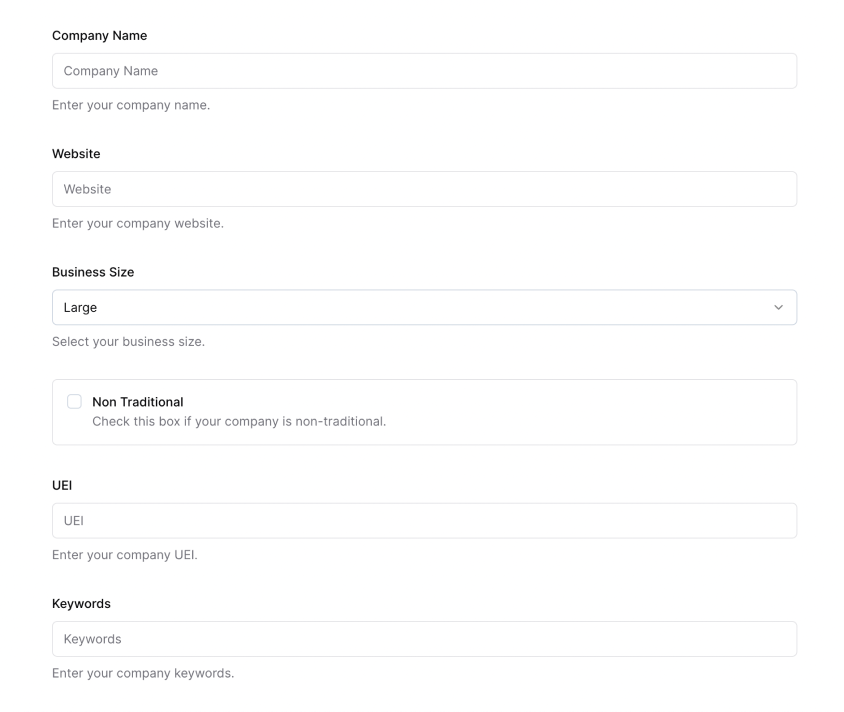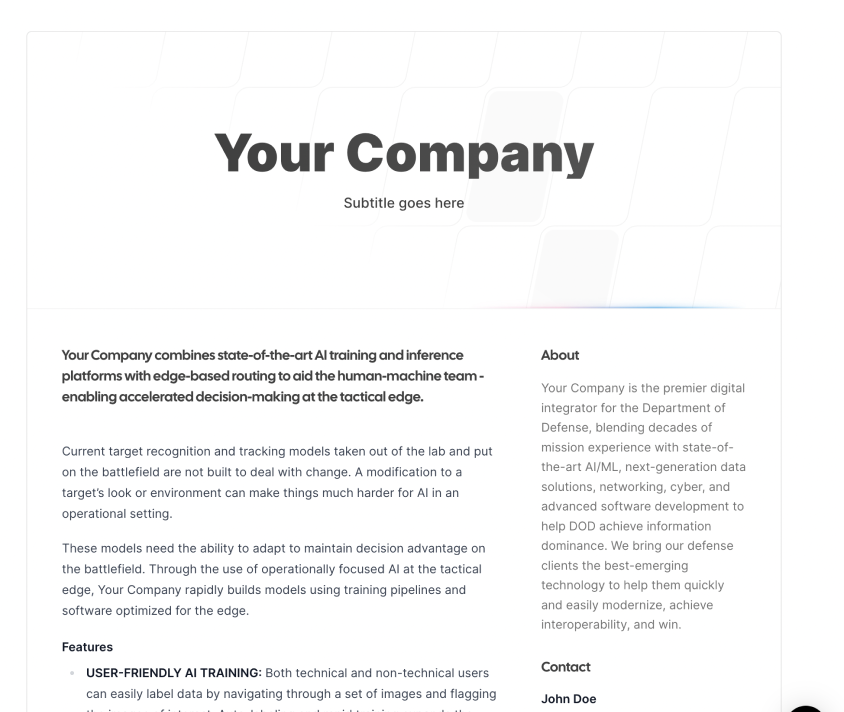
11.0 Let's Talk About Sales
It's just sales, all the way down. Cut out the jargon and terms of art and it's just sales.
Let's Talk About Sales
There's a ton of terms of art, jargon, seemingly opaque processes.
GovCon calls it Business Development, but it's just sales.
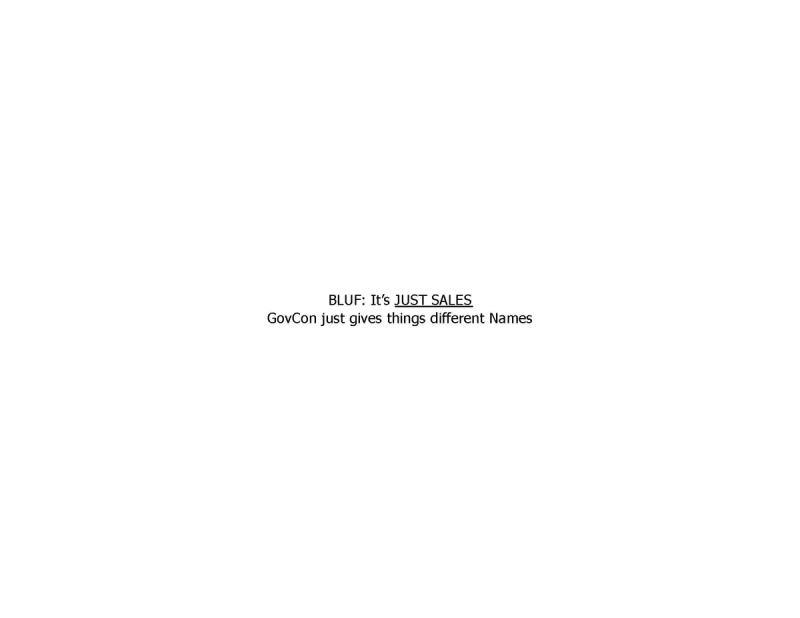
Why does this matter?
Because no matter what you do, no matter what you're selling, no matter how "new and innovative" your thing is, you have to sell it.
If you want to be successful you have to sell.
If you're not selling (winning contracts), then you're not selling enough, or not doing it properly, or both.
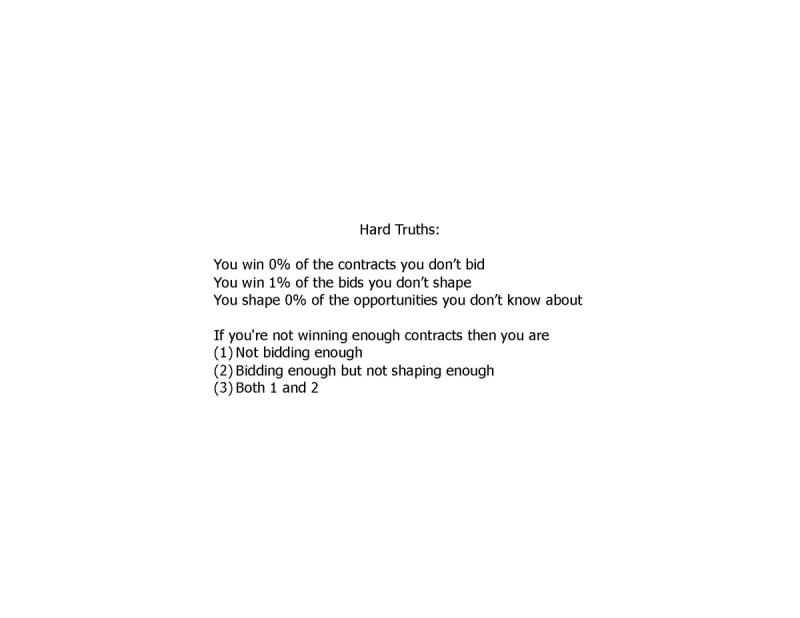
GovCon BD is not anything new, you can look up the standard processes, there's basically 5 simple steps.
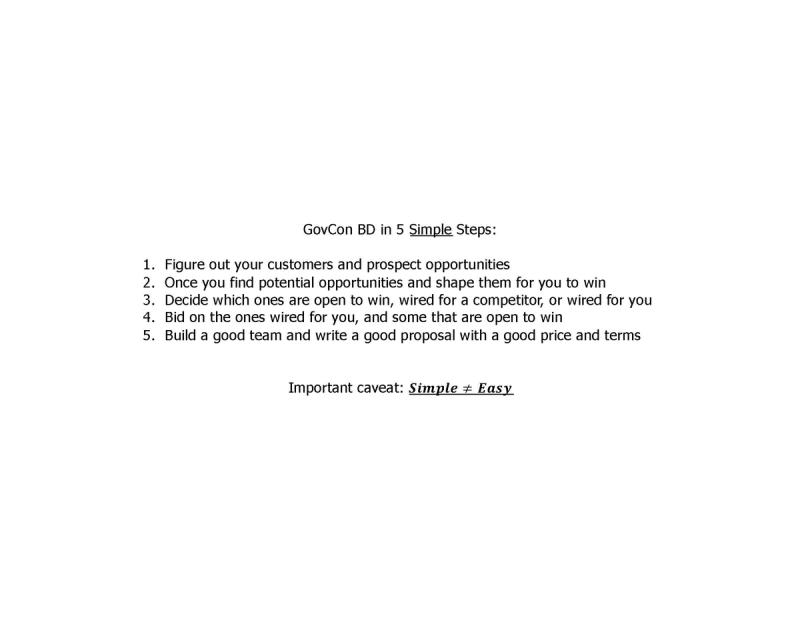
Simple however does not equal easy. GovCon sales is notoriously hard.
But you can either do it and win, or not and die on the vine.
Let me say this again for the folks in the back: your thing is not so magical that it will sell it's self.
Similarly, your thing is not so magical that the processes by which the government buys it, or the processes by which you need to sell it, are going to change around you and absolve you from having to sell.
You're not special.
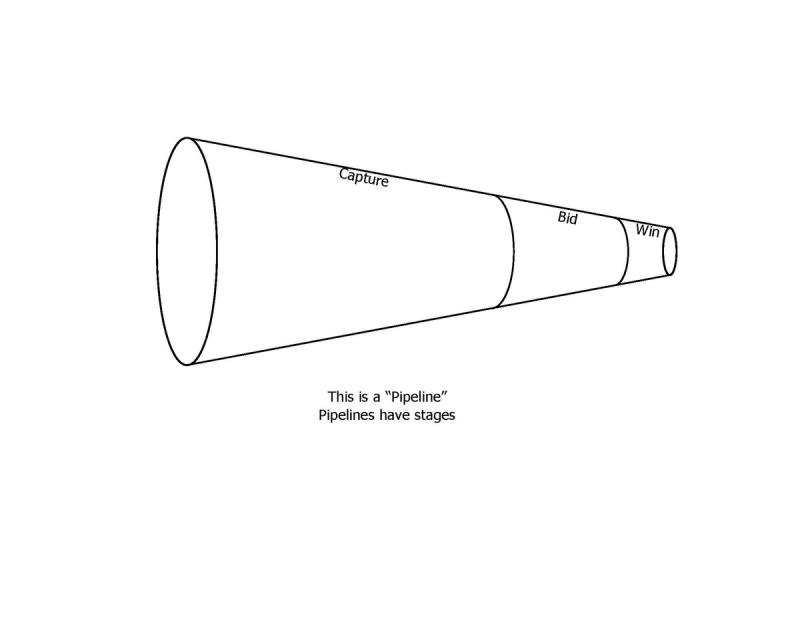
So how's it work?
It's like any other sales, there's a pipeline.
The open end is capture, basically finding, qualifying, and preselling customers.
Then there's the actual bidding.
then finally the winning.
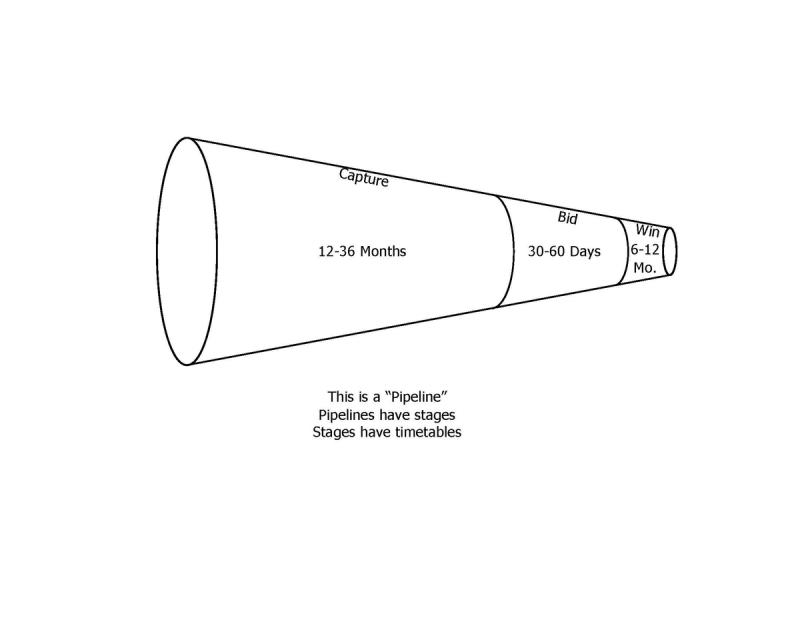
These stages are typically much longer than traditional sales pipelines.
Seriously, an established BD shop is looking at and shaping potential deals 2 years in advance. They are gathering intelligence, engaging with customers two years ahead of time.
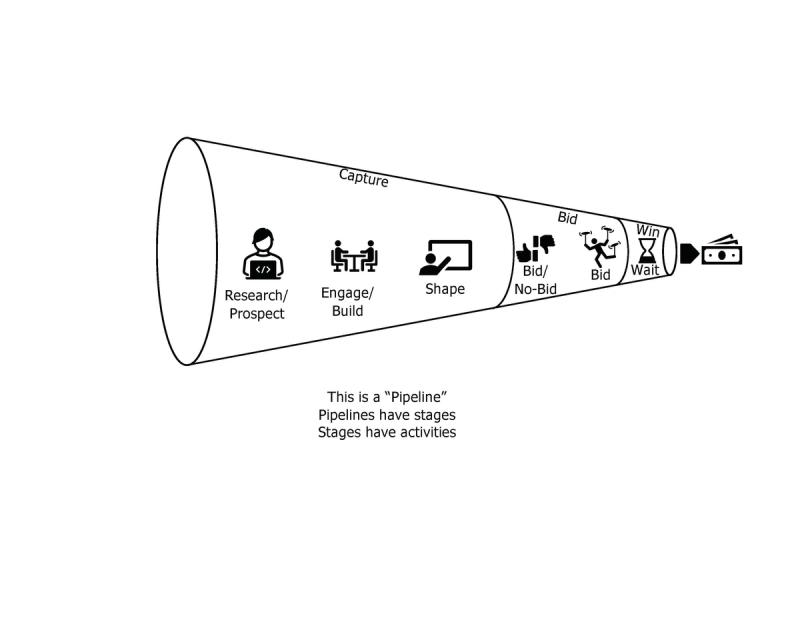
How does this work?
Again, simple but not easy:
1. research who your customers could/should be
2. engage with said customers
3. convince them that you have the best solution (and try to get them to give you an advantage)
4. decide whether you're going to bid on it
5. write a bid
6. wait
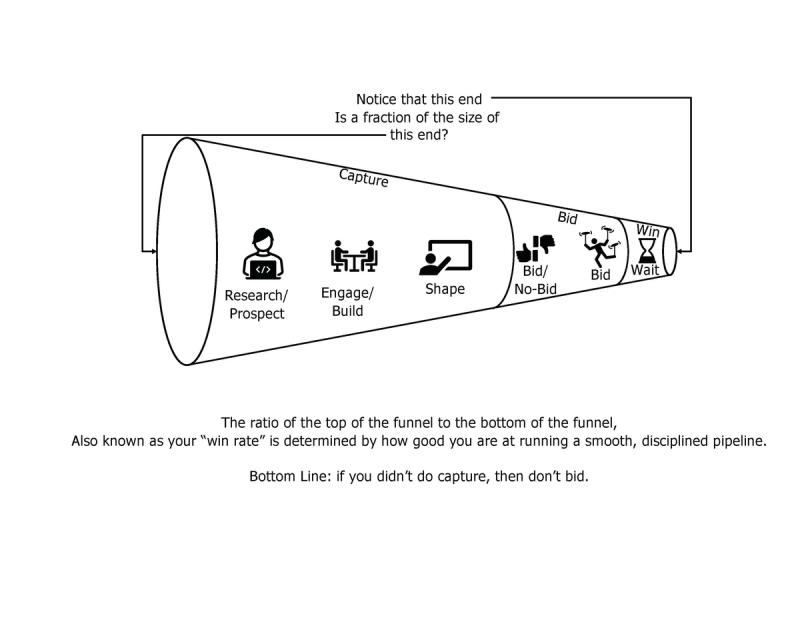
Like all other sales pipelines, the number of wins that come out the end is much lower than the number of potential deals that go in.
A crucial point in the pipeline is the bid/no-bid decision, you should turn down and not bid on all of the opportunities that you don't have a high probability of winning.
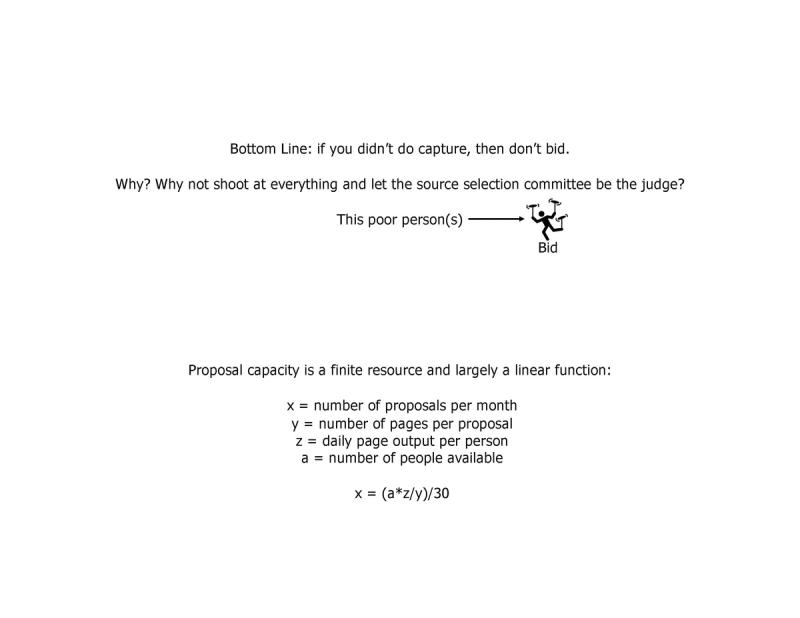
How do you determine whether to bid or not?
You put the time into capture and shaping.
You engage with the customer, you build a relationship with them, you gather intelligence, you try to get it wired for you and not the other folks.
"Do I really have to? it's so time consuming, and it's hard to find them behind their desk fortresses"
Yes, you have to.
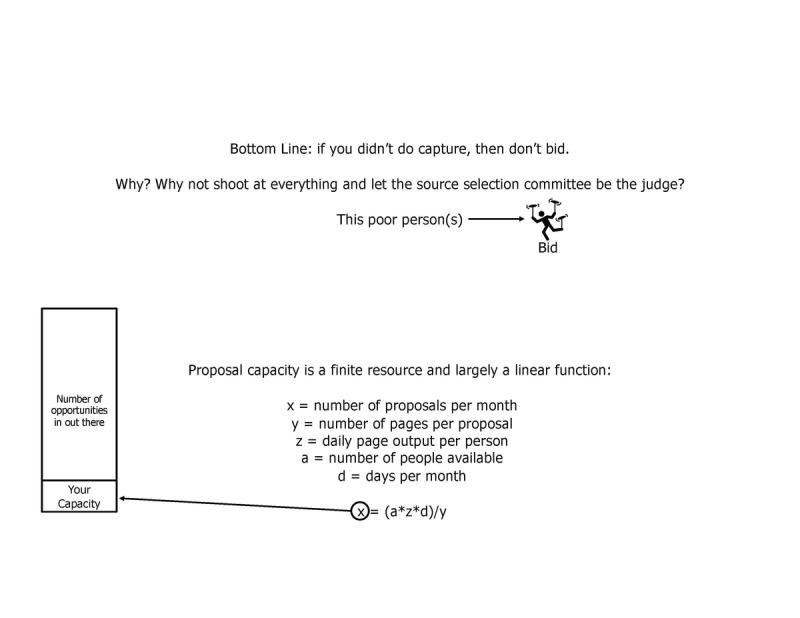
Why can't I just bid, bid, bid and let the chips fall where they may?
Opportunity cost, for every low-pwin deal you bid on, you're passing on one you could have won, if you put the time in.
At the end of the day, you have to bid to win, and your bid resources are finite, and quantifiably so.
Assume you have 4 people who can devote all of their time for a proposal effort.
Also lets assume the average proposal page count is 50 pages, that's on the low end of real proposals. Once you add in resumes, cost volumes, price proposals, a typical prop can be well over a hundred pages.
Assume a typical, fully devote proposal writer can churn out 4 pages per day, which is about average.
So then, your daily writing capacity is 16 pages, times 30 days is 480.
Divide that by the 50 pages per proposal, and you get more than 9 proposals.
Which is good, because if you don't shape the opportunities, you might win 1.
Now, down on planet earth, real proposals are not always 50 pages, they are commonly more, not everyone can devote 8 hours per day 365 days per year, not everyone can churn out 4 pages of usable proposal content per day. So you're more likely to do a handful, tops per month.
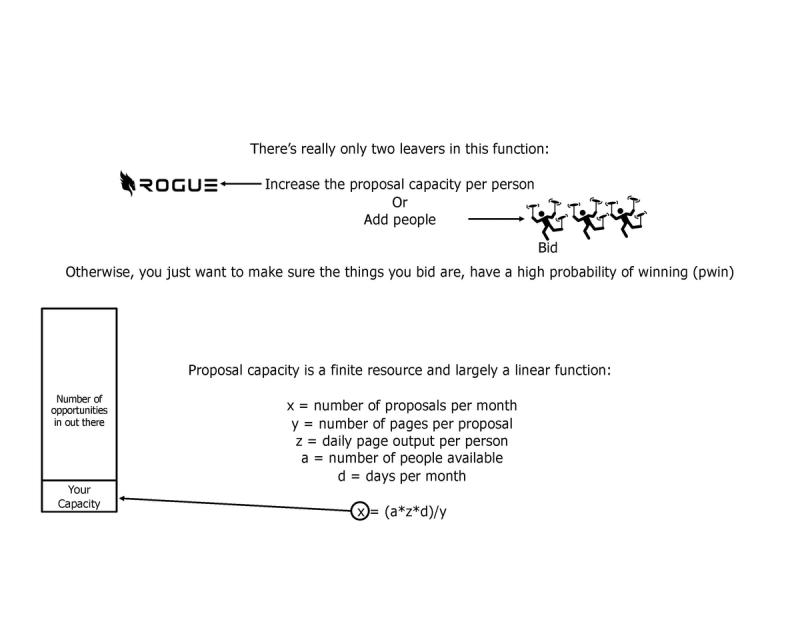
This is of course a linear function with a number of variables over which you have zero control.
About all you can control is the number of bodies you throw at the problem, this is why proposal consuiltants have jobs.
Or, make the bodies you have more effective and productive, which is why we built Rogue in the first place.
In either case, the proposals you actually DO write, should be ones that you think you're going to win.
We're not going to go over the full gamut of how to do BD or proposal writing, there is a plethora of free, readily available education resources like podcasts, blogs, and videos.
Go find them, learn how to play the game, and get good at it.
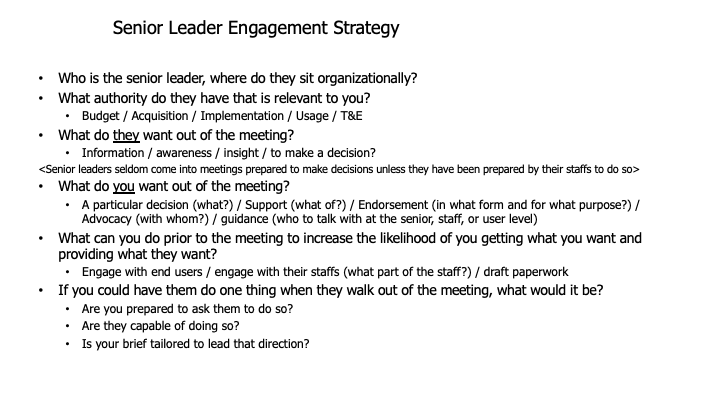
Sign up for Rogue today!
Get started with Rogue and experience the best proposal writing tool in the industry.

